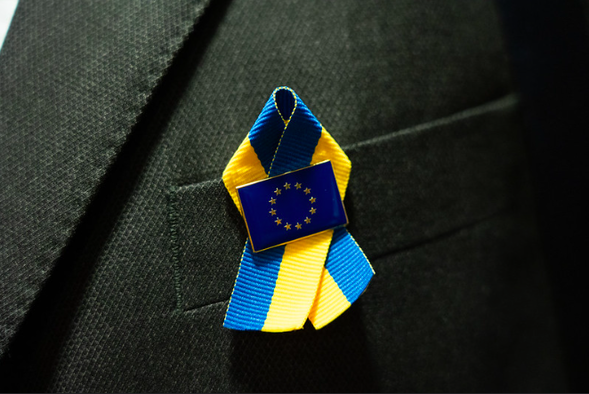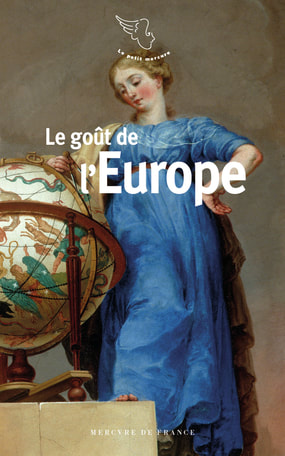|
This article originally appeared in EUROPP – European Politics and Policy on 3 January 2023. Much has already been said about John Mearsheimer and Stephen Walt’s claims that, according to the realist approach to international relations, the West is to be blamed for the Russia-Ukraine war. Their main argument is that NATO and the EU have recklessly interfered with the Russian traditional sphere of influence by expanding to the East first, and then by cooperating with Ukraine, which caused Moscow to react to protect its turf. Many counterarguments have highlighted the limitations of structural realism itself. I argue here that the West’s Ukrainian policy is much more in line with realist logic than what prominent realist authors have indicated. The reality behind the notions of ‘sphere of influence’ or ‘backyard’ are in fact much more dynamic than is often assumed.
Realism and the Russia-Ukraine war First, there is a methodological caveat. Theories such as balance of power focus on only one level of analysis – in this case, the international system – and, as such, cannot account for all dimensions of a particular historical event. As Kenneth Waltz puts it, the balance of power theory helps us understand ‘the pressures states are subject to,’ but it ‘does not tell us why state X made a certain move last Tuesday.’ Even if we assume that balance of power is an important factor in the Russia-Ukraine war, this does not imply that Putin is a rational security seeker, as opposed to a paranoid imperialist. Structural considerations cannot arbitrate unit-level questions about the origins of the war. Second, there is a theoretical problem. Even if we assume that Russia’s invasion of Ukraine is essentially an attempt to balance NATO’s expansion, does this necessarily mean that the West is to be blamed? The fact that Russia feels threatened by the power of the West does not mean that the West should back down. Seeking peace through voluntary power restraint could make sense in a liberal paradigm, not in a realist one. In a realist framework, the biggest mistake a leader can make is to base their decisions on an erroneous assessment of the distribution of power and resolve. Wars are not so much the result of the competitors’ ambitions but of their inability to agree on their respective chances of victory. In this sense, a consistent realist observer could perfectly argue that Putin is the one to be blamed because he has overestimated Russia’s power vis-à-vis both Ukraine and the West. For their part, the EU and NATO, by extending their influence, would only be drawing on the logical consequences of Russia’s relative weakness. This is even more evident if we adopt the framework of ‘offensive realism’ promoted by Mearsheimer. Following this logic, states are incentivised ‘to maximise their relative power because that is the optimal way to maximise their security’ (p. 21). Therefore, an offensive realist might consider that, if NATO had shown more restraint in the 1990s by refusing to expand into Eastern Europe, this would not have necessarily led Russia to be less ambitious. Today, the confrontation between the West and Russia might not take place in Ukraine, but in Poland, under much more unfavourable conditions for NATO. Some theorists have even suggested that NATO should actually be blamed for not having expanded fast enough to Ukraine to prevent Russia’s aggression. Balance of stakes How can we arbitrate this debate? Implicit in these arguments are different assessments not so much of balance of power but of balance of stakes. According to Mearsheimer et al., Ukraine is an existential stake for Russia but a non-essential one for the West. For them, Russia’s Ukrainian policy is equivalent to the Monroe Doctrine in the Americas. Conversely, as Mearsheimer puts it, ‘The United States and its European allies do not consider Ukraine to be a core strategic interest’. According to this assumption, the West would have underestimated the value of what is at stake for Russia and thus the Russian resolve to defend its area of influence. However, it could be argued that an independent Ukraine is also essential to NATO security. For European states in particular, Ukraine is not a distant issue. Western efforts to keep Ukraine out of Russian domination are no less rational than Russian efforts to keep Ukraine out of NATO. Balance of stakes is as crucial as balance of power when we want to understand the fate of a particular war. For example, in The Tragedy of Great Power Politics (p. 60), Mearsheimer writes, ‘Few would deny that the United States was a vastly more powerful state than North Vietnam, yet the weaker state was able to defeat the stronger in the Vietnam War (1965–72) because non-material factors trumped the balance of power.’ Actually, what trumped balance of power was a largely material factor – balance of stakes. Vietnam’s territory had much more value and utility for North Vietnamese than for Americans, which largely explains why the former were prepared to make much greater sacrifices than the latter to achieve victory. While it is difficult to assess the value of Ukraine for Russia and that for the West, we can make an important observation: the balance of stakes is rapidly shifting in the West’s direction. As the war stimulates Ukraine’s resistance and anti-Russian sentiment, the value for Russia of a potentially Moscow-ruled Ukraine (or part of it) tends to decrease. Just as European colonial powers realised during the decolonisation movement, a hostile and mobilised society can be very expensive to occupy in the long run and tends to become more a burden than an asset. This explains why possessions initially considered essential to the maintenance of British or French power and prestige, such as India or Algeria, were eventually abandoned, even though the colonisers had not suffered any decisive military defeat on the ground. The prize was simply no longer worth it. Conversely, the Russia-Ukraine war has dramatically increased the value of Ukraine for the West. Within a few months, Ukraine has proven to be a highly effective bulwark against Russia’s expansionism and the de facto spearhead of Europe’s defence. Ukraine’s ability to immobilise the Russian army, greatly reducing its capabilities and exposing its weaknesses, contributes much more to NATO’s security than most NATO member states do. Even in the longer term, having the military skills, unique experience and moral strength of the Ukrainian people on NATO’s side would be an invaluable asset. Whose backyard? In summary, a victorious Russia would gain a ruinous colony; a victorious West would gain a precious ally. In the battle for Ukraine, Russia has less and less to gain, while the West has more and more to gain, which might eventually influence their respective incentives to invest in the conflict. This dynamic helps us to understand, for example, why EU and NATO enlargements to Ukraine might have seemed unnecessary risks a short time ago but now seem increasingly reasonable investments. The stakes have grown. In his seminal piece, Mearsheimer writes, ‘The West had been moving into Russia’s backyard and threatening its core strategic interests.’ If we define a great power’s ‘backyard’ as a geographically close area in which it holds both political influence and special interests, we can conclude that this relationship tends to be reversed today. By attacking Ukraine, Russia has recklessly threatened the West’s strategic interests and is now suffering consequences. Ukraine is now the EU’s and NATO’s ‘backyard.’ Comments are closed.
|
My name is Pierre Haroche and I am a specialist in European integration and European security.
In this blog I present my thoughts on EU democracy, defence and identity. If you are interested in my proposals, do not hesitate to get in touch! |
Proudly powered by Weebly




